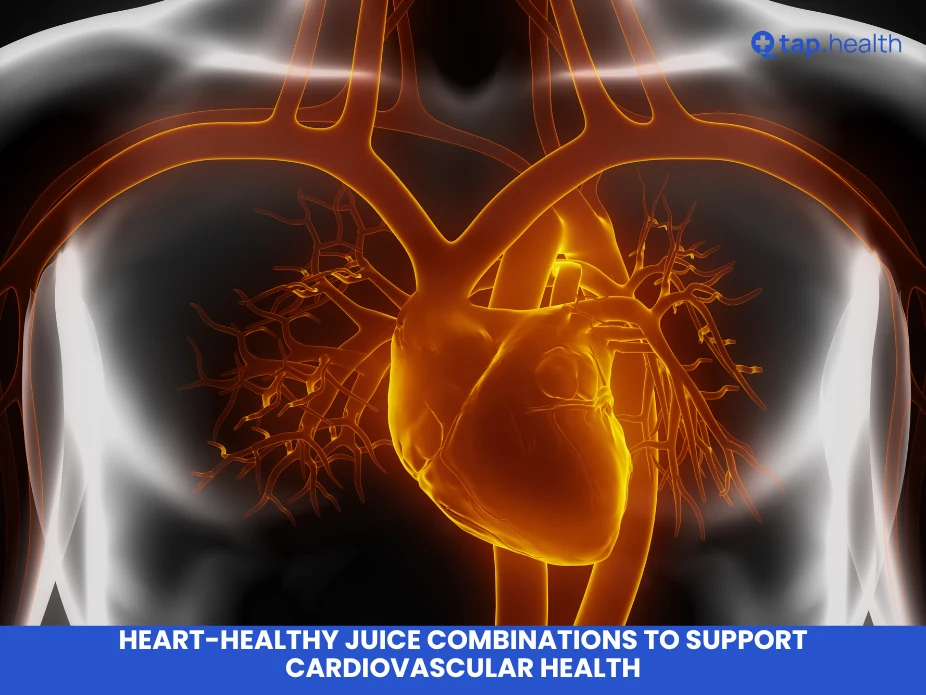Understanding Heart-Healthy Juice Combinations for Cardiovascular Support
Maintaining cardiovascular health involves nutrient-rich diets. Heart-healthy juice combinations deliver antioxidants, potassium, fiber to reduce inflammation, manage cholesterol levels, improve blood flow. These juices support blood pressure control, prevent plaque buildup in arteries.
Why Focus on Cardiovascular Health?
Heart pumps oxygen-rich blood body-wide. Cardiovascular disease leads global deaths, preventable via diet. Key risks: high blood pressure, elevated cholesterol, poor blood sugar control, chronic inflammation, excess weight. Juices rich in nitrates, vitamin C, beta-carotene combat these.
Benefits of Juicing for Heart Function
Fresh juices concentrate nutrients for easy absorption. Aid hydration, enhance circulation, lower oxidative stress. Ideal for busy lifestyles seeking quick cardiovascular boost.
Nutrient Density in Juices
Potassium balances sodium, magnesium supports vessel function, antioxidants fight inflammation.
Hydration and Circulation Improvement
Water-rich ingredients like cucumber, watermelon maintain fluid balance, beet nitrates dilate vessels.
Top Heart-Healthy Juice Combinations
Beetroot Carrot Apple Juice for Blood Pressure
Beetroot nitrates lower blood pressure, improve circulation. Carrots provide beta-carotene reducing inflammation. Apple soluble fiber cuts cholesterol.
Recipe: 1 beetroot, 2 carrots, 1 apple, optional 1/2 lemon. Juice fresh.
Citrus Ginger Juice for Vessel Health
Oranges, grapefruits supply vitamin C, flavonoids strengthening arteries. Ginger boosts nitric oxide, reduces inflammation.
Recipe: 2 oranges, 1/2 grapefruit, 1-inch ginger, optional 1/2 lemon. Juice together.
Spinach Kale Pineapple Juice for Potassium Balance
Leafy greens offer potassium, folate regulating blood pressure. Pineapple bromelain aids anti-clotting, circulation.
Recipe: 1 cup spinach, 1/2 cup kale, 1/2 cup pineapple, optional 1/2 apple. Juice blend.
Tomato Celery Juice for Lycopene Protection
Tomatoes lycopene prevents cholesterol oxidation. Celery compounds lower blood pressure, inflammation.
Recipe: 2 tomatoes, 2 celery stalks, optional 1/2 cucumber, 1/4 lemon. Juice immediately.
Cucumber Mint Lemon Juice for Hydration
Cucumber hydrates vessels, mint eases digestion, inflammation. Lemon vitamin C enhances endothelial function.
Recipe: 1 cucumber, 1/4 cup mint, 1 lemon juice. Refreshing daily.
Practical Tips for Preparing Heart-Healthy Juices
Use organic produce maximize nutrients, avoid pesticides. Skip added sugars rely natural fruit sweetness. Consume fresh retain enzymes, vitamins. Complement whole foods, proteins, fats balanced diet.
Incorporating into Routine
Start mornings beet-carrot-apple. 2-3 times weekly supplements cardiovascular efforts. Pair exercise, sleep optimal results.
Expert Insights on Juice for Heart
Nutritionists recommend beets, berries, greens nitrates, antioxidants. Cardiologists stress alongside whole grains, lean proteins. Research shows lycopene reduces heart risk, potassium aids hypertension.
Research-Backed Recommendations
Fresh over packaged preserves nutrients. Variety colors broad phytonutrients. Moderation prevents sugar spikes. Lifestyle synergy amplifies benefits.
People Also Ask: Heart Juice Queries
Which Juice Lowers Cholesterol Fast?
Apple-beet-citrus combos soluble fiber, antioxidants reduce LDL oxidation.
Best Juice for High Blood Pressure?
Beetroot dominant; nitrates convert nitric oxide, relax vessels.
Can Juices Replace Heart Medications?
No; supplement diet, consult doctor. Support not substitute.
Green Juices for Inflammation Reduction?
Kale-spinach-pineapple bromelain, folate combat chronic inflammation.
Daily Juice Safe for Diabetics?
Low-sugar vegetable-focused; monitor portions avoid fruit overload.
Real-Life Heart Health Boost
Morning citrus-ginger provides energy, vessel support. Consistent intake manages weight, reduces strain. Track improvements cholesterol panels.
Long-Term Cardiovascular Gains
Lower stroke risk via better circulation. Enhanced hydration prevents viscosity issues.
How Can TapHealth Help Manage Diabetes?
TapHealth offers tools tracking blood sugar, personalized plans integrating heart-healthy juices. Monitor responses, adjust for stable levels alongside cardiovascular care.



